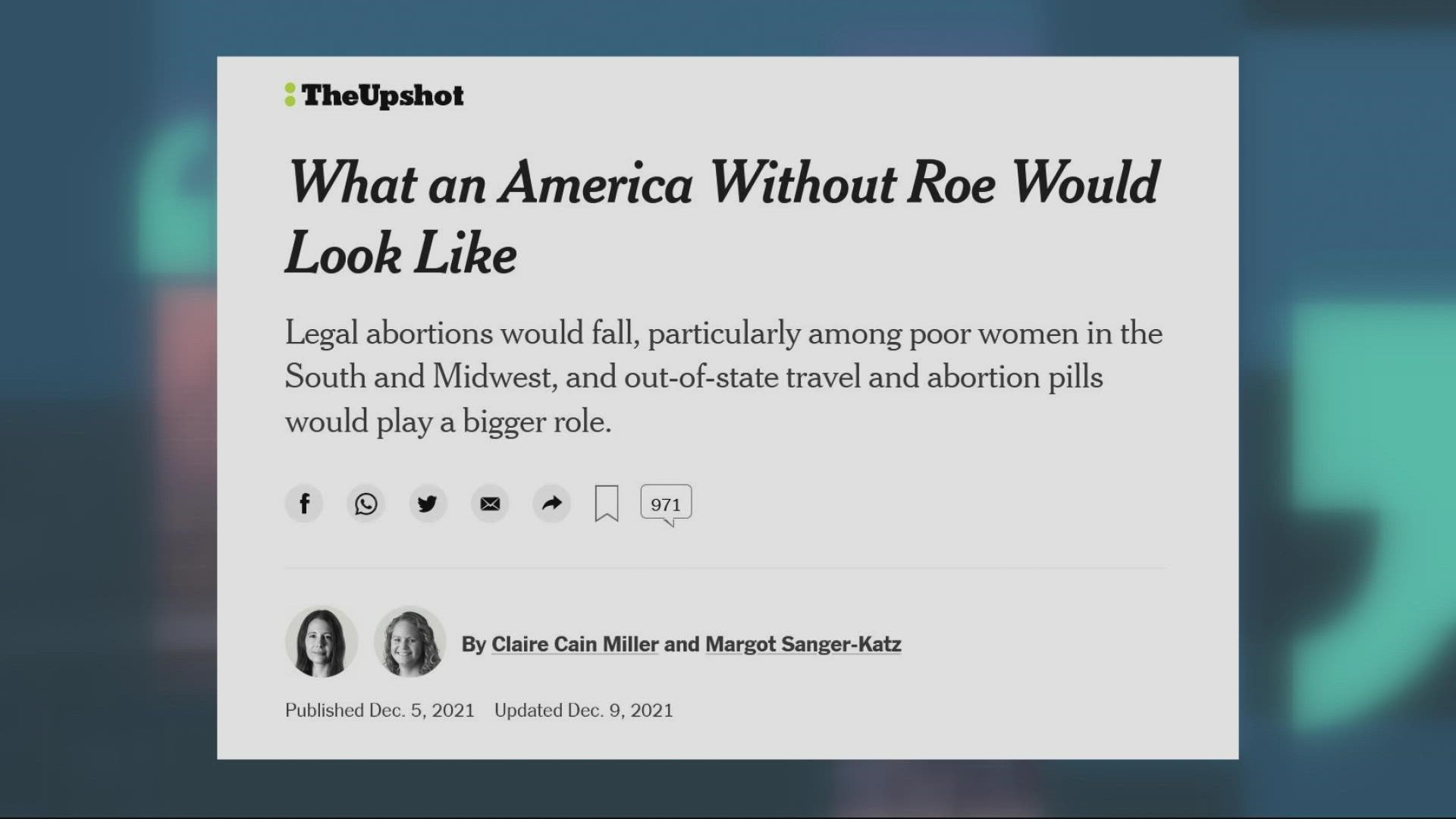PORTLAND, Ore. — If the U.S. Supreme Court overturns Roe v. Wade, it would limit abortion access for people living in parts of Eastern Oregon, according to a new report.
The New York Times published a map showing where legal abortions are expected to decline if the landmark ruling is overturned. States would be able to decide whether to outlaw abortion, and many states have trigger laws in place that would automatically ban the procedure.
While Oregon does not have a trigger law and is unlikely to outlaw abortion due to the legislature’s Democratic majority, an automatic ban on most abortions would happen in neighboring Idaho. That would impact people seeking abortions in far Eastern Oregon, according to the map.
“People who currently live in Eastern Oregon actually travel to Boise or other places in Idaho to receive abortion care because it's an easier drive,” said Christel Allen, the executive director of Pro-Choice Oregon. “The difference that we'll see after Roe, or when Roe or if Roe is overturned, is those folks are going to have to travel potentially hundreds of miles more.”
The map predicts a 25% to 30% decrease in legal abortions for people living in Malheur County on the Idaho border, and an up to 5% decrease for people in Baker County, also on the state line. These estimates were compiled by researchers at Middlebury College, the University of California, San Francisco and the Guttmacher Institute.
“[Abortion] access in the state of Oregon already looks a lot different from living in Portland or living on the coast or living in the Eastern half of our state,” Allen said. “We have the majority of clinics available on the I-5 corridor in our state, with the exception of a clinic in Bend that offers abortion care.”
RELATED: Portland City Council passes resolution to donate $200,000 to Northwest Abortion Access Fund
A person in Ontario, Ore., seeking an abortion needs to drive about an hour to get to a clinic in Boise. If abortion becomes illegal in Idaho, that person would have to drive almost four-and-a-half hours to get from Ontario to the clinic in Bend, which is the only one in Eastern Oregon.
“When we're thinking about caring for someone who is pregnant, it is a time sensitive health service, and asking someone to take additional time for travel is something we're absolutely thinking about,” Allen said.
If Roe is overturned, Oregon could also see an influx of people traveling to the state for abortion care. A recent report from the Guttmacher Institute predicts a 234% increase in people coming to Oregon for this reason, including a potential 230,000 patients from Idaho.
Allen said Oregon may not be equipped to handle that surge.
“We're able to currently just care for the number of people in our state,” she said. “This is a whole new situation, and it's going to require folks who make decisions about what we need to be investing in to prepare for this.”
The U.S. Supreme Court is hearing a case about abortion access in Mississippi, which could result in the court’s conservative majority voting to overturn Roe. On Friday, the court upheld a Texas law that bans abortion after six weeks, but also ruled that providers can still challenge the law.

